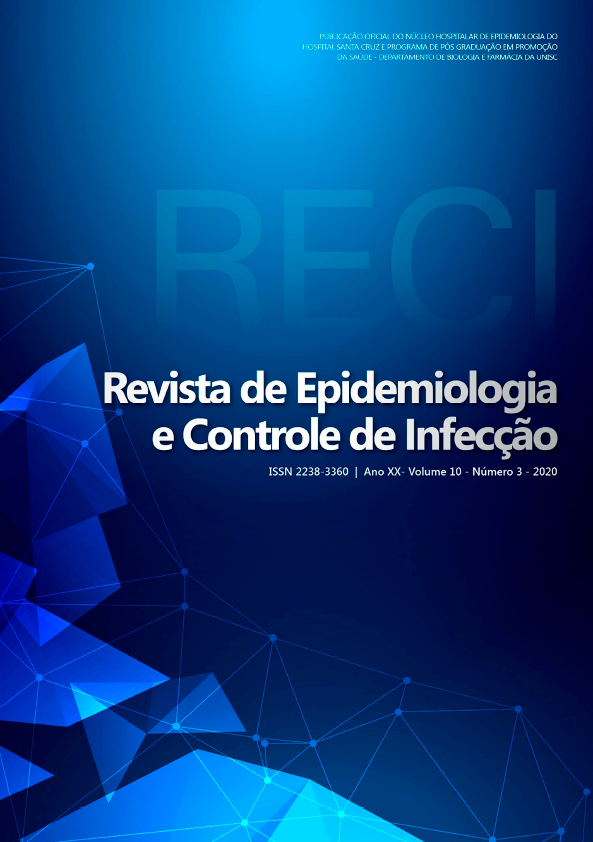Diving mask adapted for non-invasive ventilation and prone position in a patient with severe covid-19: case report
DOI:
https://doi.org/10.17058/reci.v10i3.15402Palabras clave:
Coronavirus infections, respiratory insufficiency, noninvasive ventilation, pronation, AnticoagulantsResumen
Justification and objectives: In the search of strategies to treat acute respiratory failure caused by COVID-19, non-invasive ventilation (NIV) and the use of prone position in spontaneous breathing appear. The objective is to present the case of a patient with severe COVID-19 admitted to an intensive care unit (ICU) who used an adapted diving mask, which is configured as an innovative interface for NIV, and the prone position. Methods: Case report of a hospitalized patient diagnosed with COVID-19 who underwent early NIV by means of an adapted diving mask and the prone position during spontaneous breathing for 8 hours at night and 6 hours in the day. Results: Female patient, 56 years old, systemic arterial hypertension and obesity, with dry cough, odynophagia, fatigue and severe dyspnea on admission. Chest tomography with bilateral ground-glass opacities. Non-invasive ventilation was instituted 1-2.75 times/day, for 40-60 minutes, with positive pressure at the end of expiration of 8 (7.25-8.00) cmH2O and support pressure of 5.5 (4.00 -6.00) cmH2O. Air leaks of 6 to 30%, with good tolerance. The prone position during spontaneous breathing resulted in increased peripheral oxygen saturation and reduced respiratory discomfort 30 minutes later. Conclusion: The association of the use of NIV with an adapted diving mask and prone position during spontaneous breathing proved to be effective in preventing the orotracheal intubation of a patient with severe COVID-19, emphasizing the importance of the proposed intervention.Descargas
##submission.downloads##
Publicado
Cómo citar
Número
Sección
Licencia
Derechos de autor 2020 Litiele Evelin Wagner, Kemberly Godoy Basegio, Carlos Fernando Drumond Dornelles, Rafael Foernges, Mari Ângela Gaedke, Andréa Lúcia Gonçalves da Silva, Dulciane Nunes Paiva

Esta obra está bajo una licencia internacional Creative Commons Atribución 4.0.
The author must state that the paper is original (has not been published previously), not infringing any copyright or other ownership right involving third parties. Once the paper is submitted, the Journal reserves the right to make normative changes, such as spelling and grammar, in order to maintain the language standard, but respecting the author’s style. The published papers become ownership of RECI, considering that all the opinions expressed by the authors are their responsibility. Because we are an open access journal, we allow free use of articles in educational and scientific applications provided the source is cited under the Creative Commons CC-BY license.


